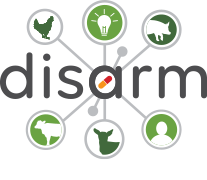Facilitation and farmer-led approaches to changing practices
Changing people’s behaviour and practices on farm is challenging. Historically, this has been largely achieved through top-down approaches, such as legislation, regulation and penalties. Advisor-led programmes are also top–down in nature as they transfer knowledge in a one-way manner from a position of expert to ‘lay’ person. There is often little consideration and inclusion of the farmer’s views and ideas. Top-down approaches have been shown to lack the impact needed to transform farming practices in response to increasing environmental, social and economic challenges facing the industry.
Bottom-up ways of working that adopt a more farmer-led approach are a potential solution. Facilitating these farmer-led approaches is a skill many advisors are not familiar or trained in. A recent UK study explored how such an approach helped change practices around antimicrobial use on UK dairy farms. 5 facilitated farmer action groups were established and followed over 2.5 years and assessed to see what impact they had. Facilitators helped mobilise the knowledge in the groups and identified knowledge gaps farmers needed help with. They fostered a sense of solidarity between participants that improved confidence and capabilities to make changes to practices. There was a shift away from critically important antibiotics (the majority reduced use after one year) and each farm co-created an Action Plan of practical steps to reduce reliance on antibiotics with a holistic focus on the whole farm system.
Every farm participant changed at least one thing within a year, with >80% implementing over a third of their Action Plan within 12months. The facilitators were a pivotal part of the approach and a key recommendation is to train vets in facilitation.
